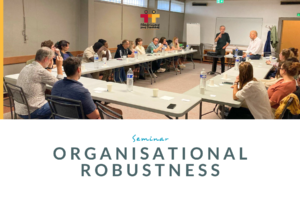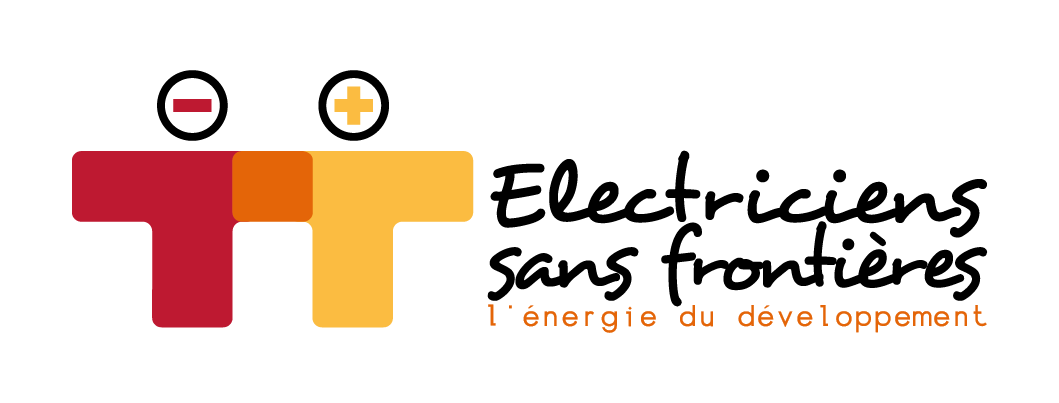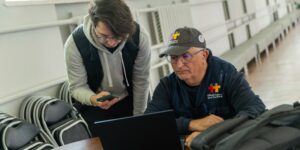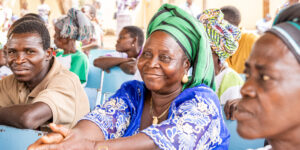
Electriciens sans frontières had the privilege of welcoming Olivier Charbonnier, expert in organizational management and Managing Director of the firm Interface, for a workshop on organizational robustness during the annual seminar, bringing together the employee team and management.
He recently co-published a book devoted to the notion, entitled L’entreprise robuste – pour une alternative à la performance.
From performance to robustness
In an ever-changing world, where crises are multiplying and resources are becoming increasingly scarce, the quest for performance as a key criterion no longer seems adapted to reality. A number of highly successful organizations have collapsed as a result of disaster or a combination of crises.
“For an organization, robustness is measured by its ability to adapt, to withstand shocks and to endure over time, even in an uncertain context.”
– Olivier Charbonnier
One might think that humanitarian aid organizations should be able to react to the unexpected, while preserving their resources and their mission. They have, in fact, developed robustness in this sense.
Concrete examples from Electriciens sans frontières
- Ukraine: deployment of hybrid solutions to ensure access to electricity, even in disadvantaged areas.
- Morocco: a sustainable energy response after the earthquake of September 2023, in collaboration with local communities to strengthen their autonomy.
- Palestine and Lebanon: maintaining essential projects despite complex contexts and limited resources.
- Africa and Asia: projects in schools, health centers and villages in Nepal, Burkina Faso, Madagascar and Senegal. Focus on sustainable, resource-efficient solutions, with beneficiaries and local associations and partners.
These initiatives show that robustness and sustainability can go hand in hand with operational efficiency, while remaining true to the NGO’s humanitarian values.
A different prism of analysis
But how can we carry out an analysis through a less objective prism than that of performance, traditionally assessed by growth indicators (volume of activity, financial amounts, number of projects completed), and all this in a context marked by a crisis in the financing of public development aid and international solidarity?
An individual and collective approach
Olivier Charbonnier emphasizes that robustness starts at the individual level: each member of the organization is invited to reflect on his or her practices, choices and ways of contributing to the overall mission.
It is also built collectively. Team exchanges, coherent actions and the ability to share best practices are all key to strengthening it.
A robust organisation is one that is stable and sustainable over time, capable of performing well at times but also accepting that it may sometimes underperform in order to ensure its long-term survival, with periods of development and exchange.
– Olivier Charbonnier
In order to apply these still abstract notions to our structure, Hervé Gouyet, President of the association, recalled several moments of crisis that the NGO had already experienced in its history.
Two sub-group exercises then enabled the staff and the association’s board of directors to reflect on a concrete application of the principle to our organization:
- Identify what already makes our structure robust: our human scale, which enables us to remain agile and have short decision-making circuits; a multiplicity of partners; actions with a diversified typology in several geographical areas; salaried and volunteer human resources with complementary profiles.
- These discussions also enabled us to review our 2023-2027 strategic action plan in the light of the concept, asking ourselves how these actions contribute to our robustness.
Possible answers: How can we create more dedicated spaces for working together? How can we deepen mutual understanding between the various components of our organization, from head office to regional offices and field teams? How can we identify new factors of robustness?
Towards a more robust and sustainable organization
The seminar enabled us to consolidate our vision: to preserve resources and strengthen the viability of our teams and projects, so that we can continue to fulfill our corporate purpose: to bring sustainable access to electricity to vulnerable populations.
Our warmest thanks go to Olivier for his insights, and to the entire employee team for their constant commitment. Together, we are continuing our journey towards a more robust organization, capable of meeting current and future challenges while embodying our values of solidarity, sustainability and responsibility.



